Ah, the video game tie-in. A handful of brilliant games came about as a result of the late 90s-to-early-00s' somewhat ghoulish obsession with cross-market synergy (like Peter Jackson's King Kong, say, or GoldenEye 007) but the majority of them were, at best, forgettable.
As the obsession died down however, a younger, trendier opportunist stepped up and took its place: the anime tie-in game. Naturally, games based on anime aren't anything new. They are, however, popping up with more and more frequency – likely due in part to anime's ever increasing popularity outside of Japan – and one publisher is responsible for the majority of the most popular releases: Bandai Namco. Due to its collaboration with anime publishing giant Shueisha, Bandai Namco has the licensing rights to the most popular anime and manga titles in existence. Dragon Ball, Naruto, Bleach, Gundam, My Hero Academia – if it's an anime you've heard of, Bandai probably owns the rights to turn it into a video game.
But just as the majority of movie tie-in games used to either be cookie-cutter first person shooters or unimaginative third person action adventure games, today the fixation seems to be on arena fighting games – which, unfortunately, brings us to Jujutsu Kaisen: Cursed Clash.
Manage cookie settings
Sadly, Jujutsu Kaisen: Cursed Clash isn't just derivative of other arena fighters, it is the epitome of every pitfall the genre consistently falls into. Trying to explain the difference between it and the other, similar anime arena fighters Bandai Namco have published, like My Hero's One Justice or One Punch Man: A Hero Nobody Knows, is like trying to describe the difference between two slightly different shades of grey. There is one big difference between Cursed Clash and every other arena fighter I've played, however: it is, without question, the worst one so far.
The other, slightly more promising distinguishing factor between Jujutsu Kaisen: Cursed Clash and its fellow arena fighters meanwhile is the 2v2 aspect to its match ups. While others usually allow you to swap between characters or use them as assists, Cursed Clash instead wants you and your teammate to assist each other simultaneously. In theory, that sounds really interesting, but in practice there isn't any definable synergy to actually experience, due to how underdeveloped the core gameplay is.
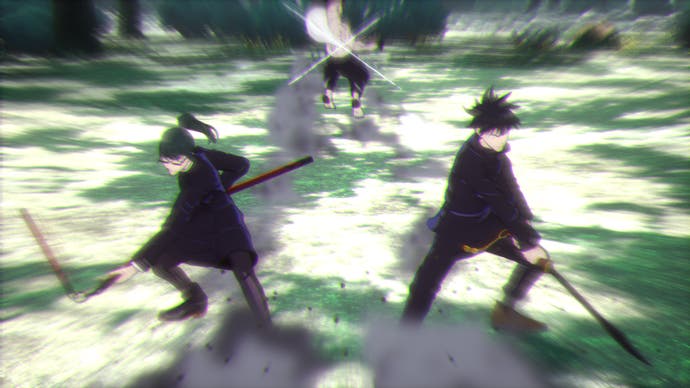
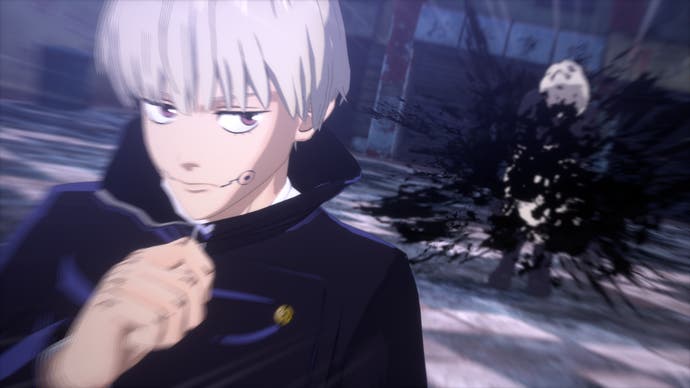
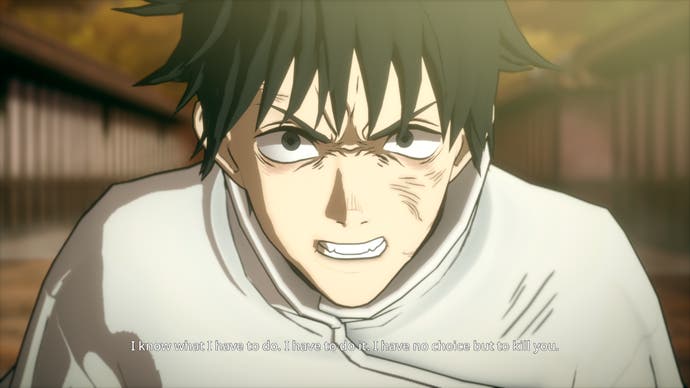
Arena fighters aren't exactly known for having combos that are complex or difficult to execute, but even in this respect Cursed Clash just doesn't feel like it's trying. To combo, you press the same single button. With some characters, you can press one button and then press another, different button to end the combo. One character's special ability, Maki, allows her to extend her combo string by canceling it before you knock the opponent down – which means you can chain mashing one button into the same one button. Riveting stuff.
Instead of allowing you to knock your opponent toward your teammate and enable a saucy 2 on 1 combo, attacking actually just results in you autocombo-ing your opponent into the ground. During the few times I was able to hit someone at the same time as my teammate, it had the complete opposite intended effect. Attacking together always ended up knocking the opponent out of both my attack and my teammate's attack, losing us damage that would have otherwise been guaranteed if my teammate would have just stood still and allowed me to finish by repeatedly smacking one button instead of daring to help.
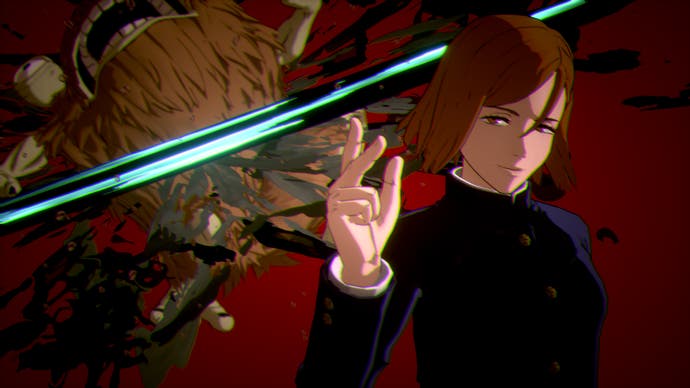
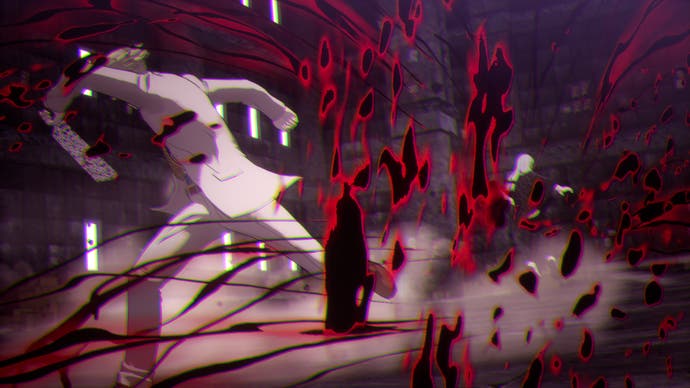

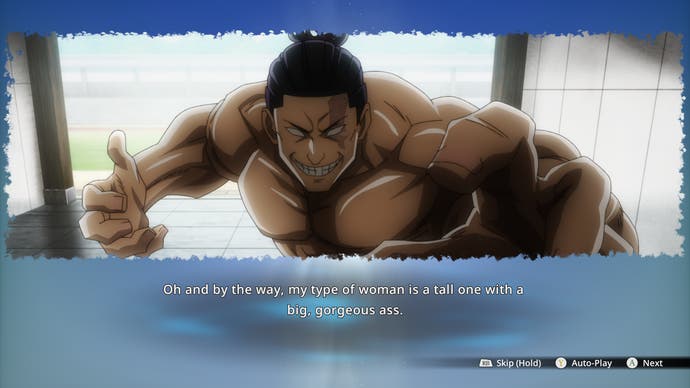
There is one way in which the 2v1 aspect can help, which is by executing a Joint Attack. Holding backwards and attacking will launch your opponent into the air, during which they are locked into an extremely long falling animation. However, as soon as your teammate hits them once during this attack, it triggers a Joint Attack cutscene. You and the three other people in the match have to sit and watch the same overly long animation play out every single time you execute a Joint Attack, which neatly brings me to my next grievance: this game is not the prettiest. Other arena fighters can get away with lengthy super attacks or long cutscenes during battle, because they're genuinely pleasing to look at, but the character models in Jujutsu Kaisen: Cursed Clash just look too rigid. Developers Byking and Gemdrops are clearly trying to replicate the artstyle of the anime, but it doesn't quite work in motion due to the lifeless, plastic facial animations and the flat approach to shading.
Yet somehow, even with gameplay this rudimentary and a roster that features only 15 characters, Cursed Clash is wildly unbalanced. Characters that have ranged attacks massively outclass those that don't, which might not be a problem if executing ranged attacks required any modicum of skill. Instead, just as with melee characters, ranged characters can simply spam one button and combo their opponent with ease. Because ranged attacks automatically track the opponent you're locked onto, you're not even aiming – the game is just aiming for you.
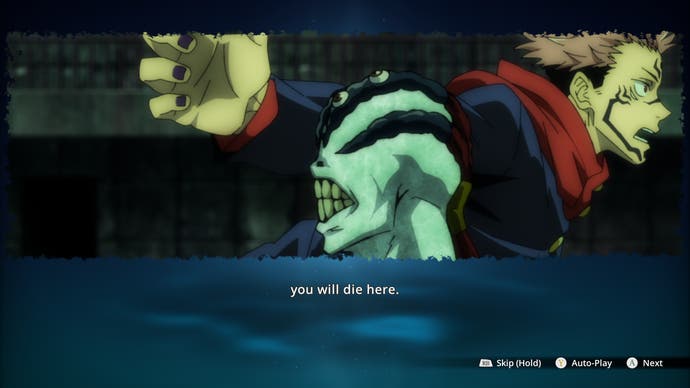
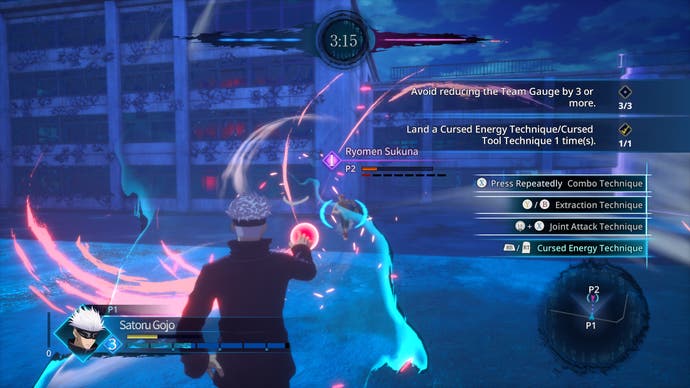
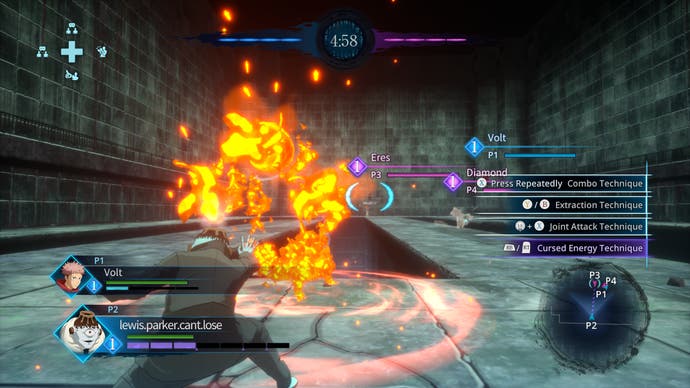
Completing Jujutsu Kaisen: Cursed Clash's story mode took me about five hours. To some, that might sound like a passable length. However, I am in no way exaggerating when I say that I spent more time reading during the story mode of Cursed Clash than I actually spent playing. Story mode covers the first season of the anime and the Jujutsu Kaisen 0 film, and by “covers” I mean it distils the plot into a Microsoft PowerPoint presentation. If you've already seen the anime or read the manga, what exactly is to be gained from experiencing it again, beat for beat, in such an inarguably inferior way? And if you don't know the plot of Jujutsu Kaisen, I beg of you, please do not spoil one of the best anime in recent memory by subjecting yourself to the modern equivalent of watching it through a View-Finder.
This also brings me to a potentially niche, but still deeply frustrating issue: Japanese language with English subtitles is an option, but much of the time those subtitles simply don't appear. Only two of the three cutscenes I counted in story mode had subtitles, while the majority of dialogue you hear in the menus, during character intros, and in the middle of combat is completely unsubscribed, regardless of what language you choose. So not only does Cursed Clash force the people who are playing it solely due to its association with Jujutsu Kaisen to play it dubbed – just so you can understand what's going on most of the time – it also seems to have disregarded the needs of the deaf community entirely.
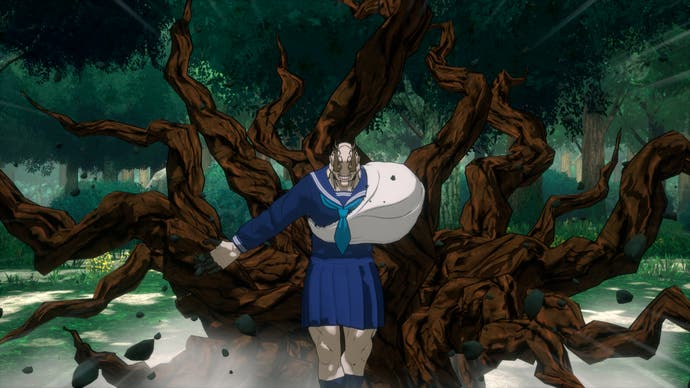
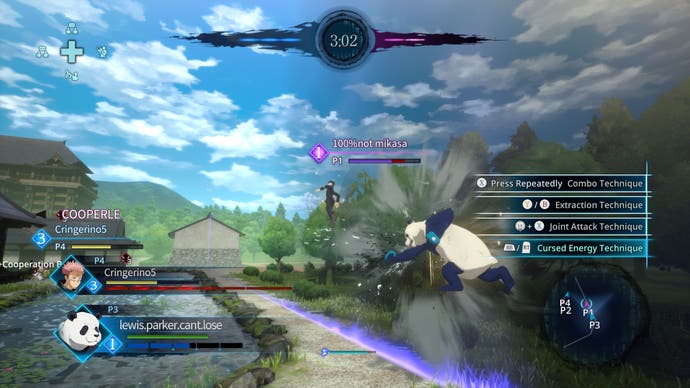
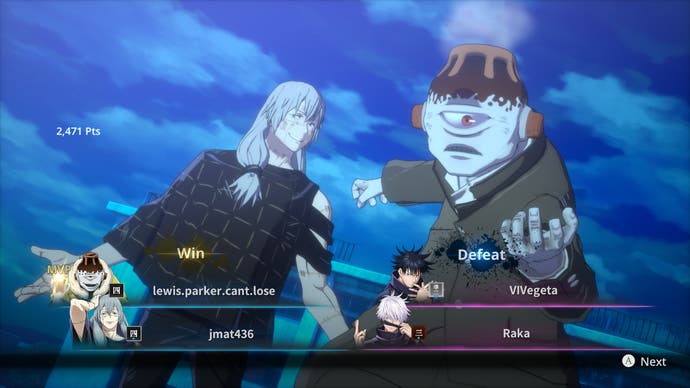
Outside of story mode, there are four other modes: online versus, Free Battle, Rush Battle and Survival Mode. Free Battle is just a way to play against the CPU, and you can act as a sort of practice mode considering you can set your opponents to “Do Nothing”. A feature like this could be useful in a different game, but considering combos in Cursed Clash boil down to spamming one button there's hardly room for extensive labbing here. There also isn't a way to play offline with a friend, which could have been this game's one saving grace considering how terrible the online experience is.
Online versus comes in two flavours, ranked and unranked, and setting aside the fact there's not much use for a ranked mode given the lack of skill involved, the netcode in Cursed Clash is also awful, the worst I have experienced in recent memory. I have relatively good internet and I tested the online using a wired connection, yet every single game had frequent, terrible lag spikes. I don't know if this was the fault of my opponents or because of some issue with the game itself, since there were no indicators regarding the quality of my opponent's connections, but the consistency in which it frequently lagged during every match I played implied it's the latter.
Also, due to how incredibly unbalanced the roster is, every single game I played featured at least one of four characters – Sukuna, Gojo, Jogo and Kugisaki. Due to the popularity of Gojo's character I can understand why people would want to play him regardless, but the frequency at which I encountered every other character implies that the imbalance is as obvious to everyone else as it was to me.
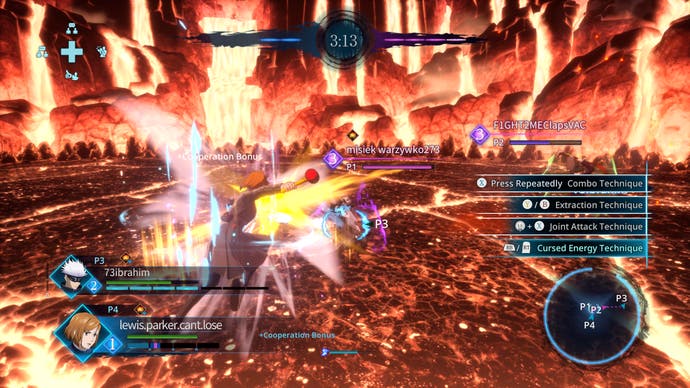
Rush Battle and Survival Mode, meanwhile, are the same mode. Survival Mode is just a harder version of Rush Battle. Both modes pit you up against waves of CPU-controlled enemies, which either come in the form of playable characters or a handful of monsters that have been recycled from the story mode. As you play through more waves, you can increase your chosen character's stats by leveling them up and by equipping them with items that provide basic buffs. Both modes can be played online in co-op or offline with a CPU but, considering how laggy the online is and how ineffective your CPU-controlled buddy is, neither seem like particularly enticing choices. A wave based survival mode could have potentially been fun, but given the small roster size it already started to feel repetitive after the second time I tried it.
And that's really all there is to Jujutsu Kaisen: Cursed Clash. A short, pointless story mode, a ranked versus mode with terrible character diversity and even worse netcode, and a half-baked attempt at an endless co-op mode. A lot of this could be excused if the game was fun, but even die-hard Jujutsu Kaisen fans are going to have a hard time squeezing anything more than ten hours of playtime out of a game so repetitive and devoid of activities or depth.
It might be tempting to argue every tie-in video game is a cynical play for maximizing IP. But that wouldn't be fair: it's more than achievable, and even where anime tie-in games are concerned, Jojo's Bizarre Adventure (1998) and Dragon Ball FighterZ are examples of extremely well-regarded 2D fighters based on anime properties, games that feel like they were made with genuine appreciation for the source material. There are even examples like this within the anime arena fighter genre itself, such as Naruto Shippuden: Ninja Storm 4 and Mobile Suit Gundam: Extreme vs. Maxi Boost – both of which were published by Bandai Namco. Clearly the publisher has the capacity to produce quality anime fighting games when it feels like it. Unfortunately, Jujutsu Kaisen: Cursed Clash isn't one of them.
A copy of Jujutsu Kaisen: Cursed Clash was provided for review by Bandai Namco.
#Jujutsu #Kaisen #Cursed #Clash #Review #product #disguised #game